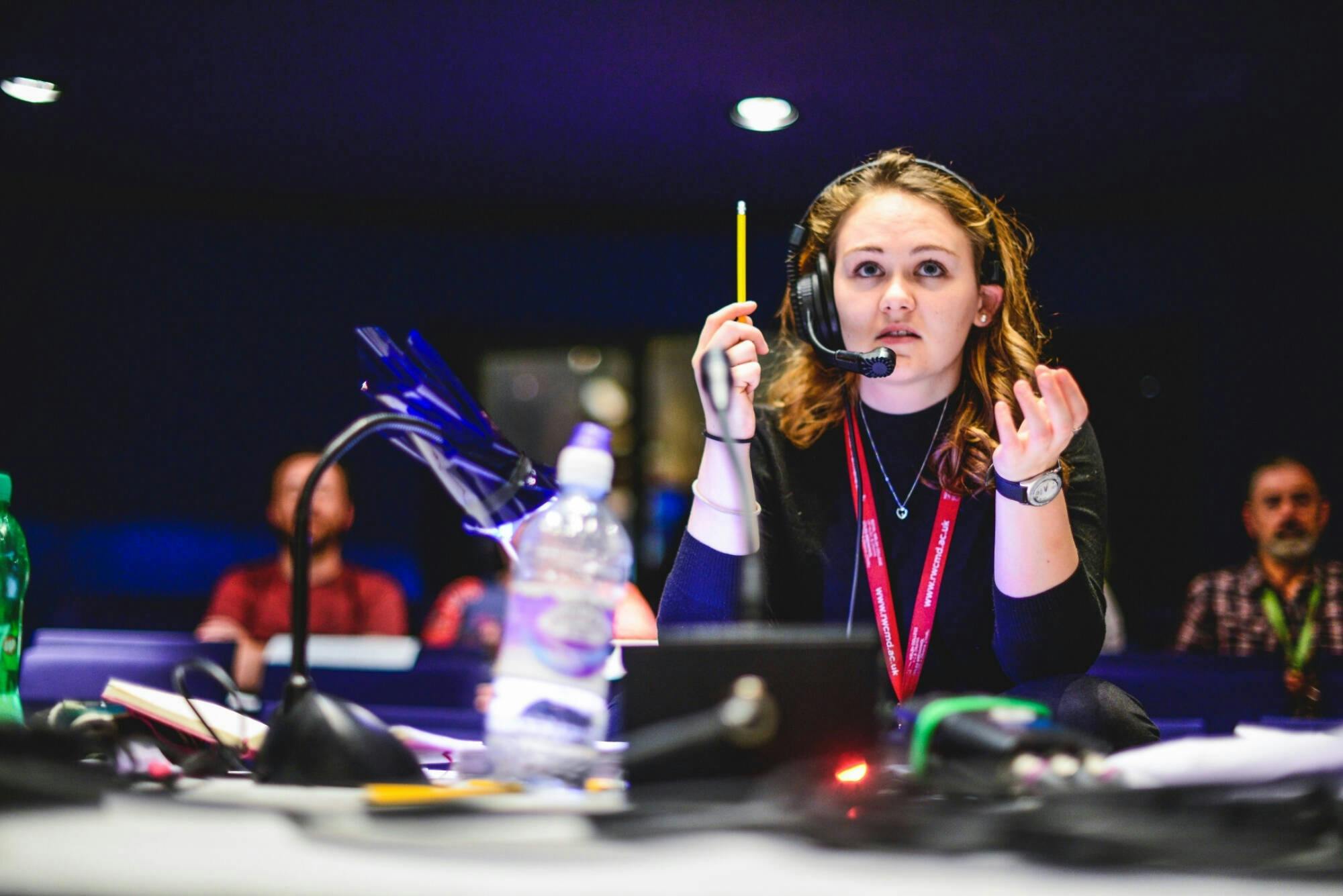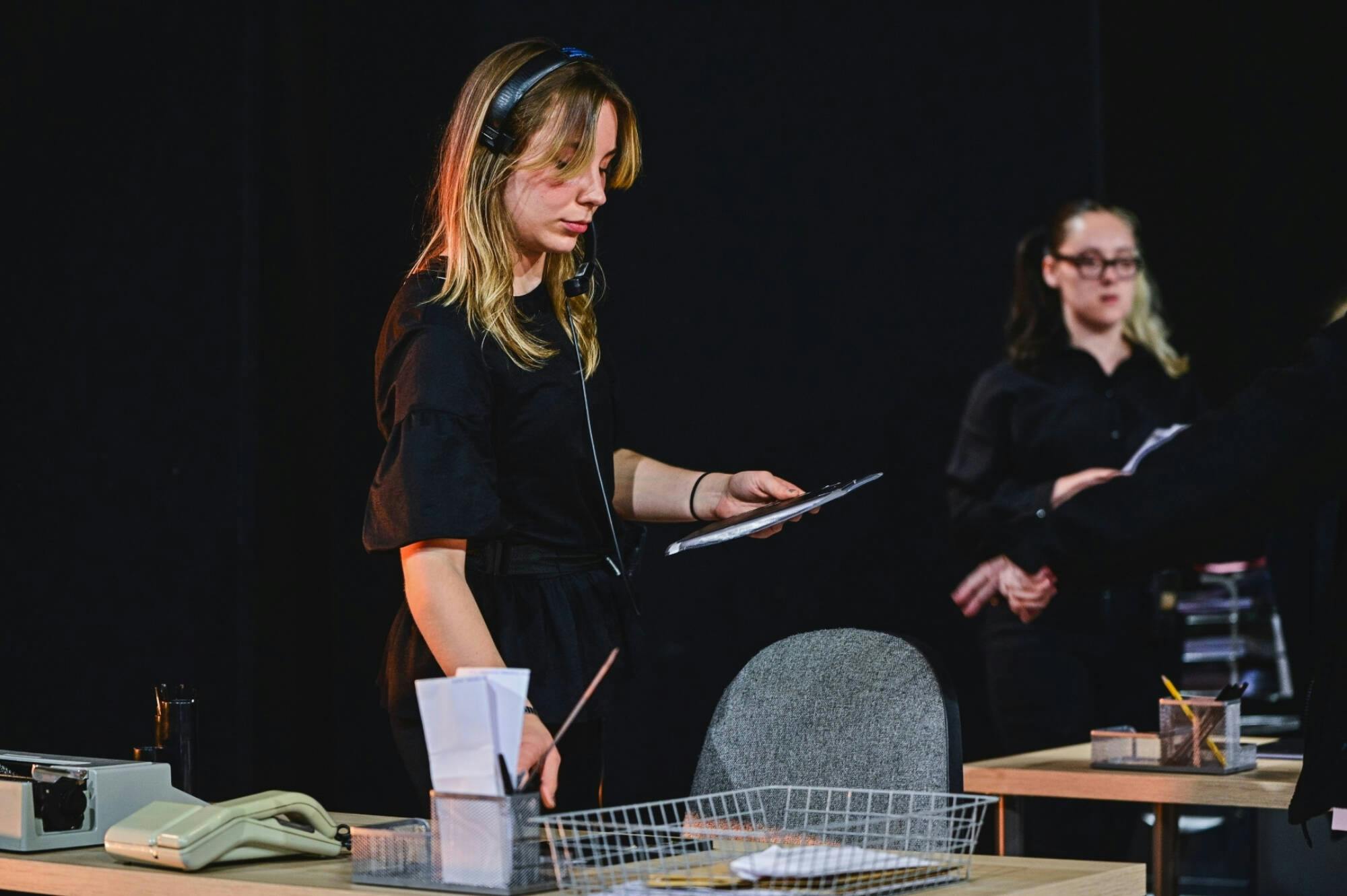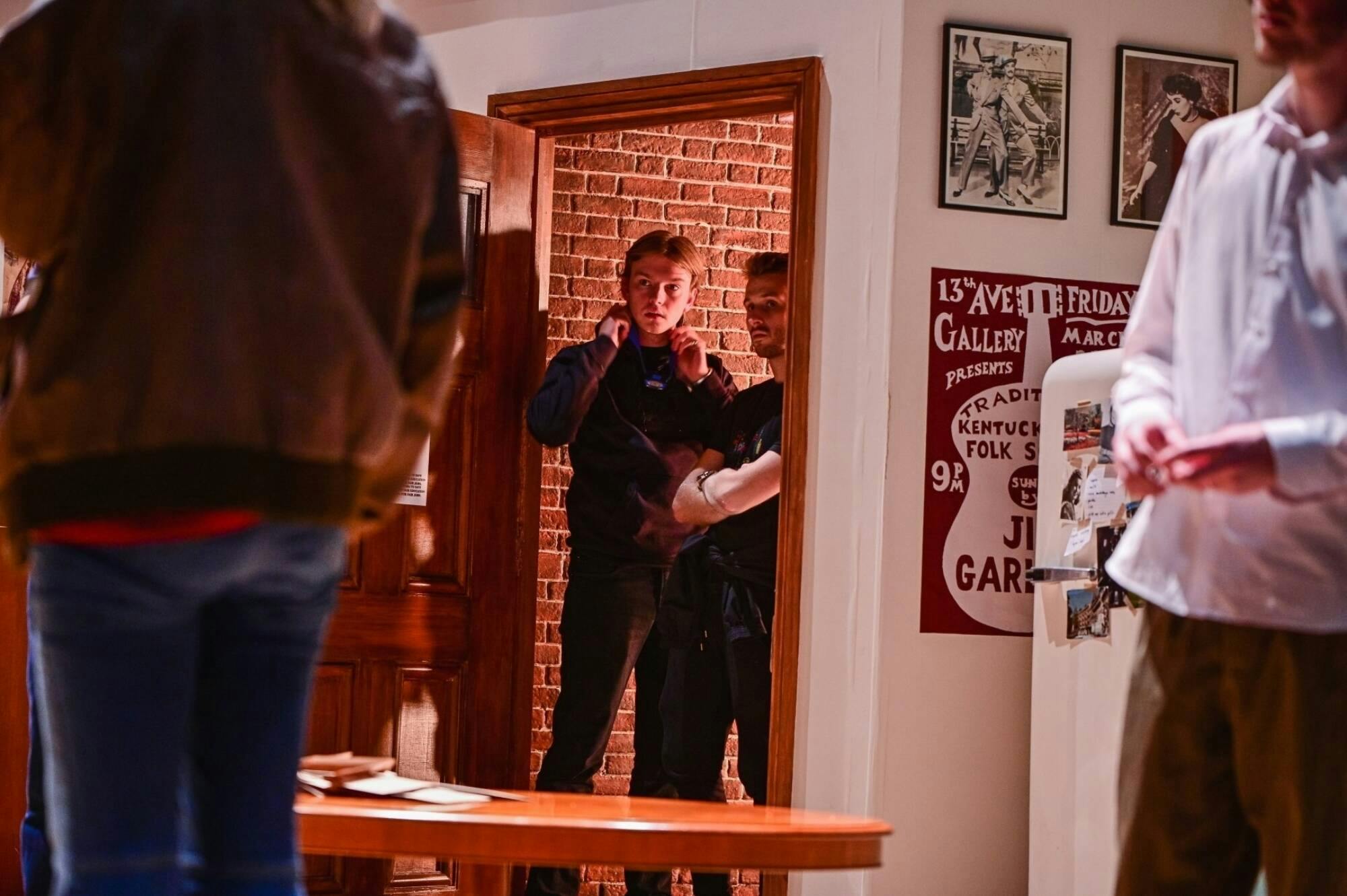

BA (Hons) Stage Management & Technical Theatre
Award:
BA (Hons) Stage Management & Technical Theatre
Awarding body:
University of South Wales
Location of study:
Cardiff (RWCMD, Llanishen Studios and Old Library)
Start date:
20 September 2026
Duration:
Three years full time
Course code:
W450 – UCAS
Introduction
Gain practical experience within production roles with our specialist training that opens up a diverse range of career paths in the entertainment industry.
Course overview
This specialist programme offers you hands-on training in stage management, stagecraft, technical theatre, event production and event management.
It provides opportunities for you to gain practical experience in a variety of production roles within a working environment that closely reflects that of the professional theatre and its related industries.
You’ll start by learning all the core skills needed to work on productions. Training in stage management – which revolves around organising and coordinating a live performance – includes a series of practical sessions. These will deepen your knowledge and understanding of the roles of assistant stage manager (ASM) and deputy stage manager (DSM) and include projects in prop making and sourcing.
Your stagecraft sessions will explore the skills you need to mark out rehearsal rooms and stages, construct and fit-up basic scenery, and operate stage machinery such as hemp and counterweight flying systems.
You’ll also gain technical knowledge of lighting, sound, video and electrical systems. Health and safety training is embedded throughout the course.
But it’s using your skills in a range of real-world experiences that forms the foundation of your training. Throughout your course, you’ll take part in several production placements – predominantly with the Richard Burton Company, our in-house theatre company – however, up to three of these could be within professional UK theatre production companies.
100
100% Overall course satisfaction
2024 National Student Survey (NSS)
Discover more...
Why study this course?
- You’ll gain real-world knowledge that prepares you for your future career. Your work on productions will be supported by theoretical, practical and academic sessions that will allow you to get a comprehensive mix of skills and experience.
- After learning the core skills involved in a variety of productions roles, you’ll be given the opportunity to specialise, so you can shape your training to suit your interests and career ambitions.
- Your training will be given by staff drawn from across industry and a host of visiting professionals and employers. They offer you not only first-rate teaching, but networking opportunities as well.
- After graduation, you can go onto a career in a range of areas – such as theatre, events, film and television management or more technical and design roles in lighting, sound or video. Some of our graduates have gone onto industry-related training and manufacturing research and development.
- You’ll take part in a production placement from your first term – a group project that will see you work alongside your fellow students. Each subsequent placement will offer you increasing levels of responsibility, and in your third year you’ll be a senior member of the production team, taking a high degree of ownership over the final performances.
- External work placements also feature heavily in this programme, allowing you to develop your craft in some of the UK’s leading venues and institutions.
- Often, our students will get placements at the National Theatre, the Royal Shakespeare Company, Welsh National Opera, the Royal Court and Glastonbury.
- You’ll have opportunities to undertake lighting and sound design projects, learn about international touring and develop skills in using more advanced automated flying systems.
- You’ll mix with students in other year groups in the department, as well as the actors, designers and musicians from across the College, making it a real theatre company experience.
- You’ll have classes that focus on professionalism, management and preparing for a career in the industry. As well as developing your knowledge of event management, communication studies will also explore important issues such as equality, diversity and inclusion.
- Lessons in academic and professional communications give you the ability to become an entertainment practitioner, from presenting your work – and yourself – managing your own budgets and career progression, dealing with complex and difficult personnel situations and planning large-scale events.
Other course information
Find out more about the department
Sign up to receive our latest updates
An email asking you to confirm your address will be sent. Please check your spam / junk folder if the email doesn’t arrive within a few minutes.
The College takes the protection of all personal information seriously and is fully committed to the protection of the rights and freedoms of all individuals. We will process your data according to our privacy statement, which you can read at https://www.rwcmd.ac.uk/privacy
Allow Unistats (Discover Uni) content?
This content is provided by Unistats (Discover Uni). We need to ask for permission before viewing as they may be using cookies and other technologies to collect and process your personal data. For more information, please read their privacy policy , cookie policy. To view please accept below.












